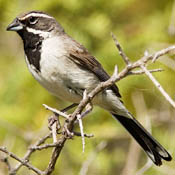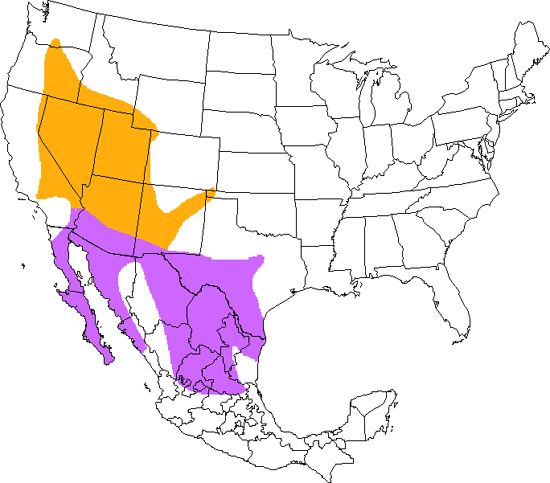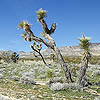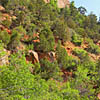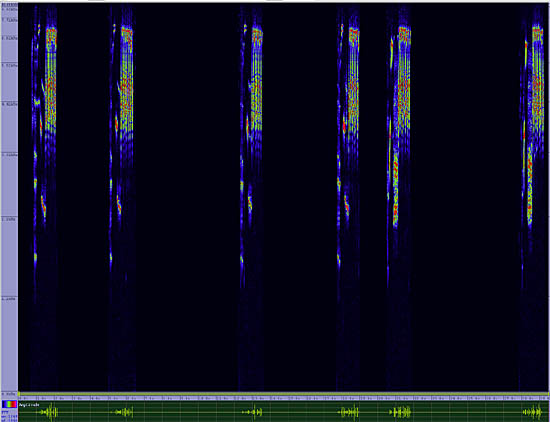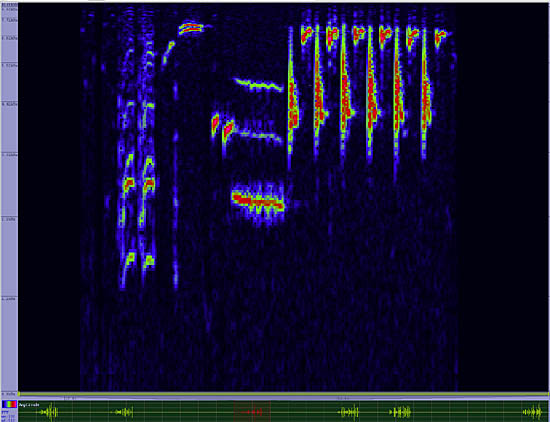Black-throated Sparrow
Amphispiza bilineata

Perching
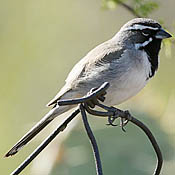
Length: 6 in. (14 cm )
In flocks with other sparrow species in the winter or pairs alone in the summer, this desert-dwelling species is common. It lives in some of the most extreme heat and dryness on the continent but seems to thrive. It relies on moisture from the grass and insects it eats and only during the winter drinks water directly from ponds and streams. The male\s song varies considerably from place to place. Its grassy nest is in a bush near or on the ground.'
The four-digit banding code is BTSP.
Bibliographic details:
- Article: Black-throated Sparrow
- Author(s): Dr. Biology
- Publisher: Arizona State University School of Life Sciences Ask A Biologist
- Site name: ASU - Ask A Biologist
- Date published: 13 Jul, 2017
- Date accessed: 18 October, 2025
- Link: https://askabiologist.asu.edu/activities/bird/black-throated-sparrow
APA Style
Dr. Biology. (Thu, 07/13/2017 - 15:36). Black-throated Sparrow. ASU - Ask A Biologist. Retrieved from https://askabiologist.asu.edu/activities/bird/black-throated-sparrow
Chicago Manual of Style
Dr. Biology. "Black-throated Sparrow". ASU - Ask A Biologist. 13 Jul 2017. https://askabiologist.asu.edu/activities/bird/black-throated-sparrow
MLA 2017 Style
Dr. Biology. "Black-throated Sparrow". ASU - Ask A Biologist. 13 Jul 2017. ASU - Ask A Biologist, Web. https://askabiologist.asu.edu/activities/bird/black-throated-sparrow
Be Part of
Ask A Biologist
By volunteering, or simply sending us feedback on the site. Scientists, teachers, writers, illustrators, and translators are all important to the program. If you are interested in helping with the website we have a Volunteers page to get the process started.



